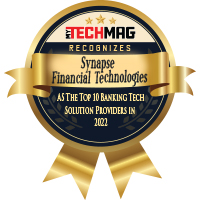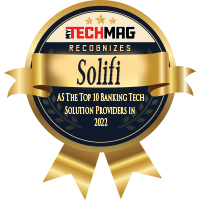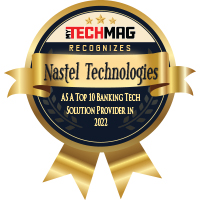
“Using machine vision technology to extract and classify data and information, AI Foundry’s solution boasts a day one 99% verified out-of-the-box (OOB) accuracy rate.”
There are a number of business niches that can profit from artificial intelligence (AI), but perhaps none more reliable than residential mortgage processing. It’s almost invariably a slow process now, but most people who ask for mortgages would like to have the process be much faster. It’s highly information-intensive, with information originating from a variety of sources: banks, businesses, real estate agents, assessors, etc. There are substantial fees associated, so there is both money to invest in improvement and a need to make things more affordable. Steve Butler, a successful tech entrepreneur, has been toiling on that problem since 2015. Mortgage processing is a document-rich process, and luckily, AI excels at extracting information from documents. But mortgages include thousands of different kinds of documents, and they have multiple media and formats—paper, electronic, and so forth.
A few of years ago, Butler and his associates decided that deep learning models might be the path to higher levels of accuracy in extracting information from documents. They are sure they were right about that data, but training all the models is a bit of a slog. So far, they can identify and obtain information from 300 types of documents—including loan estimates, closing cost exposures, W-2s, and appraisals—but Butler would like to acquire at least 600. Training the models for each type needs substantial amounts of anonymous, curated, and labeled data, which AI Foundry receives from its clients. They have a few thousand training data documents, but more will be needed to master the other document standards.
The deep learning models are necessarily about extracting a couple of thousand data components from documents, but there are various aspects of the mortgage method that are more workflow-oriented. When a document comes in, it must be identified, marked as received, checked for signatures, put through various compliance and quality checks, and entered into a mortgage company’s loan origination operation. Robotic process automation (RPA) systems are ideal for that kind of work, being a combination of workflow engine and non-human users of various information systems. There is a lot of contingent branching depending on the data that most commercial RPA systems encounter challenging, so AI Foundry developed its RPA abilities (and interfaces with other RPA systems as well). The company has already produced a loan processing robot and will ultimately have them for compliance and underwriting as well.
On average, processing and approving a mortgage today use 40 days, which is improved somewhat from the 47 a few years ago. The average cost per mortgage is about $9000, approximately half of which is from back-office labor costs. Butler at AI Foundry supposes that they can process mortgages in at least 1-2 weeks, at 10% of the mortgage bank’s back-office expenses. It’s a no-risk proposition for banks offering mortgages; they repay by the loan to AI Foundry. Since mortgage demand is quite recurrent, they don’t want to keep people around when they aren’t required.
Mortgage industry’s slow acceptance of technology
Steve thinks the complexity associated is significant. It’s a very analog process. “By that I imply, everything is paper-driven and rich in documents—there’s a record for everything. There are thousands of documents. As a consequence, anytime you introduce that amount of paper, you’ve introduced a lot of toils. It’s hard to mechanize it. One has to turn it into a robotic method,” adds Steve.
Part of it is that people had the Sarbanes-Oxley wave of regulations in the early 2000s, and then they had the next round of rules that came in 2008 and 2009 due to the problems with the subprime market. It’s a regulation-driven industry, which has produced a lot of the complexity in documents, and that’s why it is. Banks and mortgage businesses, who have to be somewhat conservative, have been unwilling or have found it a problem to sort of taking a process that operates. It’s valuable.
“We lately debuted our Agile Mortgages solution, which is a platform for automating the mortgage method from end-to-end. Meaning right from the start at the origination, within underwriting, close, and post-close, and even into the auxiliary market, the platform integrates a number of AI technologies that we’ve uncovered, including machine learning, computer vision, and robotic processing. It combines it into a platform to accomplish that amount of automation,” adds Steve.
AI Foundry is constituted of data scientists, mortgage professionals, and enterprise software people. They began four years ago wanting to take business-process automation to a distinct level and to start automating processes that, up to now, have not been capable of being automated because of the volume of complexity. They did some research in the marketplace, started to talk to banks and mortgage corporations, and realized that the back office of the average mortgage-processing performance is heavily labor-intensive. In fact, the industry operates a large labor pool to manage the documents and accomplish the business rules for excellence and compliance based on the data on those reports. In those discussions, we understood, “If we could pull collectively a totally AI-based platform, we could start to chip away at this huge cost of labor.” That’s type of how we proceeded, and with a lot of collaboration with clients, including large mortgage companies, we’ve been able to create a solution that they need.
Unrivaled Technology
AI Foundry’s Cognitive Business Automation Platform with cognitive robots combines the latest in AI, machine vision, and machine learning, to produce high-level problem solving and decision making.
Built with a model-driven, microservices structure that enables rapid development and performance, the platform automates processes by quickly obtaining data from documents with superior precision and minimal manual intervention. AI Foundry warrants a 2-hour turn-around utilizing a cognitive robot and a 4-hour turn-around to create a correspondent loan package. All with 99% efficiency out-of-the-box.
Through collaboration between the client and data scientists, AI Foundry creates a representation model to pre-process data into a robust training set that includes content, character, relevance. Utilizing machine learning and vision-based image recognition, the platform automates document-centric processes to swiftly and accurately classify and train visual content. Agile knowledge and the ability to adapt are essential to ongoing improvement. Their models are low-touch, self-learning, and proceed to improve in accuracy over time.
Agile Mortgages Solution is based on an intelligent-automation platform designed to assist lenders to optimize processes through the mortgage origination lifecycle. By automating the usual repetitive, low-value, tasks that supplement a mortgage origination process, these lenders can together accelerate certain aspects of the origination process to close loan more immediately, better scale their capacity based on demand, and reassign their more qualified staff to improve quality of service that borrowers obtain. In the end, that means to decrease cost and more significant origination amounts.
Their Cognitive Business Automation Platform with intelligent robots allows notable improvements in production, interface, and implementation capacities.
Agile Mortgage Solution of the Future
By executing the Agile Mortgages solution, lenders generally see a rapid return on their purchase. With an implementation time as little as 60-90 days, the solution can be up and working in production quickly. The Agile Mortgage solution automates the complete mortgage origination process, and lenders are instantly able to reap the cost-saving benefits in periods, not years. Using machine vision technology to obtain and classify data and information, AI Foundry’s solution possesses a day one 99% verified out-of-the-box (OOB) efficiency rate and a guaranteed 2-hour turn-around on any robot and 4-hour turn-around on comprehensive correspondent loan combinations. This allows lenders to see ROI instantly.
The company’s platform leverages the intrinsic economy of significant cloud providers, such as AWS and Azure, taking account of the low-cost core capacity for the performance of their software engine at nearly any scale of use. Solutions are created on a flexible microservice-based architecture that can efficiently employ modern cloud-based and virtualized foundations to scale up or out on demand. Using modern token-based authentication and authorization tools, other systems and applications can and securely order these services in the circumstances of their business process workflows enabling the system to grow and shrink quickly. Seamless integrations to other software can be performed in a fraction of the time it takes today with minimum disruption to the user experience.
One of AI Foundry’s clients is radius financial group inc., a small but rapidly growing mortgage finance company based south of Boston. For a company of its size, it is very competitive in its embrace of new technologies. In appreciation to AI Foundry for mortgage processing, it makes use of robotic process automation, business intelligence, predictive analytics, and other sorts of AI. Keith Polaski is co-founder and COO of radius; he concentrates on processing the loans, and his business partner focuses on customer acquisition. He states that the company was AI Foundry’s first client for mortgage banking, starting with it in June 2018. “These are not out-of-the-box solutions,” he explained. “They need a lot of customizing and integration. For instance, we have our RPA system, so we don’t practice AI Foundry’s. But they are an essential partner of ours, and we are migrating to their newest platform.” Polaski believes that AI Foundry has the first two steps mainly under control, but the third—making the original mortgage decision—is still evolving. This is partial because the radius has its criteria for underwriting contracts, and it attempts to “hand-build” mortgage loans that other mortgage finance firms can’t. This requires a high par of customization of the underwriting method in the AI system.
The new kind of technology-powered lenders are driving their internal costs to decrease and their loan turn-around times lesser, making them more competitive against the legacy lenders who are seeing prices continue to grow to $4,000 per loan and increase because of their lack of commitment to technology. The sector itself has to invest in automation, but the buyers also, the candidates, are demanding it. A more significant percentage of homebuyers are millennials, and they seem for an improved process. The concept of supplying documents and waiting a couple of weeks to find out whether or not they presented all the materials the bank requirements and whether or not those documents are correct and support their application, they don’t want to serve two weeks. “They want to know inside 24 hours, and maybe even within an hour and we can only do that with AI and with automation,” adds Steve.







